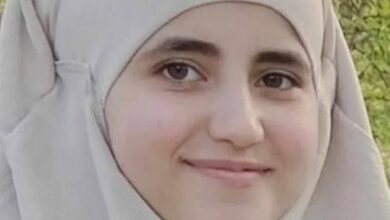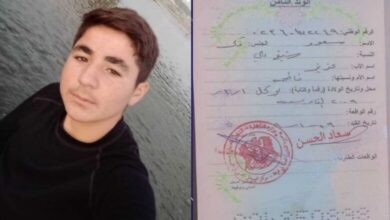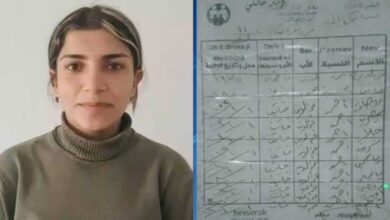
Kobani could be another Srebrenica, UN warns
Turkey under pressure to help defend Syrian town after Isis overruns headquarters of Kurdish militia.
Turkey is under new pressure to help defend the Syrian town of Kobani from Islamic State (Isis) fighters, with a warning from the UN that its fall risks another Srebrenica – the 1995 massacre that symbolised the failure of international efforts to stop Bosnia’s war.
Staffan de Mistura, the UN special envoy for Syria, spoke after Isis overran the headquarters of the Kurdish militia defending Kobani. “Everybody should do whatever they can to stop this,” the Italian-Swedish diplomat told reporters in Geneva. “I hope we will not see people beheaded.” Thousands could die if Kobani were taken, he said.
The jihadi group is already in control of more than half of the border townand if its defenders do not get more ammunition and food it could fall within days, a local activist told the Guardian. “The Turkish government is not allowing supplies across the border and they are running out of everything, even weapons, that is why Isis are taking over more and more territory,” Mustafa Abdi said. “When the air strikes attack them and kill five, they send in 50 new fighters.”
Fighters had been issued with knives in case their bullets ran out. No one expected to leave alive if they could not push back the militants.
De Mistura said 500-700 elderly people and other civilians were still trapped in the town, while 10,000 to 13,000 others were stuck close to the border. “You remember Srebrenica. We never forgot and we probably never forgave ourselves for that,” he said. “When there is an imminent threat to civilians we cannot be silent.”
Nearly 8,000 Muslim men and boys were massacred in July 1995 by Serb forces in the worst atrocity on European soil since the second world war.
In Kobani, council head Anwar Muslim said Isis militia had taken less than a third of the town, but were driving suicide car bombs into the centre in an attempt to take out Kurdish defenders. So far they had all been stopped but he also warned of a massacre if Kurdish People’s Protection (YPG) units did not get fresh supplies.
“[Isis] are trying to get into the city to kill the civilians who have stayed on,” Muslim told the Guardian by telephone. “You can hear the sounds of the war all around. We will stay until the final moment.”
Occasional gunfire and explosions that appeared to be rocket-propelled grenades and mortar shells could be heard from across the border in Turkey, and plumes of smoke were seen rising in the distance.
Abdi confirmed fears about the likely fate of civilians. “They have heard of conditions for refugees and say they prefer to die in their homes than sleep in the streets, and most of them don’t have money,” he said. “Also people who are crossing the border lately are being arrested by the Turkish government, which considers them fighters from PKK [Kurdish separatists fighting inside Turkey].”
The US Central Command said that it had conducted nine air strikes in Syria on Thursday and Friday, six of them hitting south of Kobani and destroying two buildings held by Isis, a tank and a heavy machine gun, and one fighting position. Three air strikes north of Kobani struck two small Isis units and destroyed two buildings occupied by Isis, the statement said. Aircraft from the United Arab Emirates and Saudi Arabia participated in these air strikes, it added.
Turkish officials, stung by domestic and international criticism of their government’s inaction, have continued to insist they will not be dragged into unilateral action embroiling them in Syria’s war, which has already driven more than 1.2 million people across the border, a refugee flood that Turkey has struggled to cope with.
The escalating crisis has badly strained Turkish-Kurdish relations and triggered protests and violence across the country. “Trying to read a conflict which has claimed over 200,000 lives only through developments in Kobani is not correct,” a government statement said.
Ankara says it wants to see a no-fly zone, a border buffer zone and intensified training and weapons for non-jihadi rebel groups fighting Syria’s Bashar al-Assad.
The US, leading the anti-Isis coalition, has made clear that it believes Kobani is likely to fall. “I don’t know what’s going to happen because again in the absence of any ground force there, it is going to be difficult just through air power to prevent Isil from potentially taking over the town,” the deputy US national security adviser Tony Blinken said in London. “There are other Kobanis in Iraq, there are other Kobanis in Syria on a daily basis.”
US military planners will visit Turkey next week as Washington steps up efforts to convince Ankara to play a more active role in Barack Obama’s anti-Isis coalition. White House officials on Friday said Turkey had agreed to train moderate Syrian rebels but significant details remained to be hammered out, including whether the training would be permitted to take place on Turkish soil.
theguardian.com




